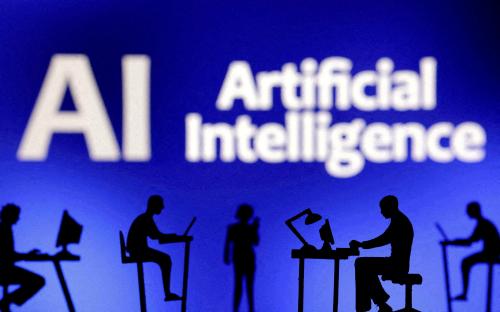With the coronavirus pandemic still spreading, technology has never been more essential. Collaboration apps and online shopping have kept the economy afloat, while video chats and messaging platforms have kept us connected to friends and loved ones. And with many lockdowns still in place, technical breakthroughs in both testing and treating COVID-19 will be key to reopening society safely.
Yet our dependence on technology is not without risks. As the scale and reach of modern technology has grown in recent years, it hasn’t just upended industries. It’s disrupted governance too. Key policy questions—Who gets to speak? Who has access to money? How do we keep people safe?—have been pulled upstream from our political institutions to a sector that was never designed to manage them.
To address that shift, Brookings is launching a new publication, Brookings TechStream. By putting technologists and policymakers in conversation, the site aims to increase the policy fluency of the former and the technical knowledge of the latter. And by discussing the societal and political implications of tomorrow’s technologies today, it seeks to limit the risks of new products and protocols before they occur.
Consider contact-tracing applications. At their best, such apps promise to quickly identify and locate individuals who have been exposed to the virus, and therefore to containing new outbreaks swiftly. If the technology worked well, it would be central to ending lockdowns. Yet as Ashkan Soltani, Ryan Calo, and Carl Bergstrom argue, contact-tracing applications pose significant risks. Rather than waiting until the technology is deployed at scale, we need to have a robust debate about its societal implications now—and the debate needs to include experts from all relevant sectors and policy domains.
To that end, today’s piece by Soltani, Calo, and Bergstrom—a technologist, lawyer, and epidemiologist, respectively—is also instructive. Brookings TechStream aims to be an open platform for researchers, technologists, and policy analysts. If you have a technical background and a penchant for thinking through the societal implications of technology, we want to hear from you.
Over time, Brookings TechStream will cover a wide range of issues at the intersection of technology and public policy. But with the pandemic continuing to spread and the election fast approaching, we are especially interested in the implications of new technologies for disinformation, surveillance and privacy, and public health.
For all its virtues, modern technology continues to pose profound challenges. Yet neither the tech sector nor the policy community can resolve them alone. We need the expertise, intuition, and experience of each. The goal of Brookings TechStream is to offer a platform where conversations between them can happen. Welcome.
Chris Meserole is the deputy director of the Artificial Intelligence and Emerging Technology Initiative and a fellow in the Foreign Policy program at The Brookings Institution.




Commentary
Welcome to Brookings TechStream
April 27, 2020